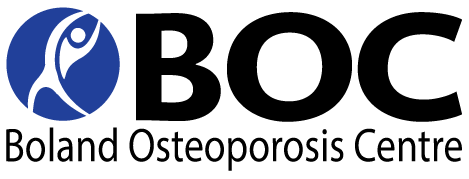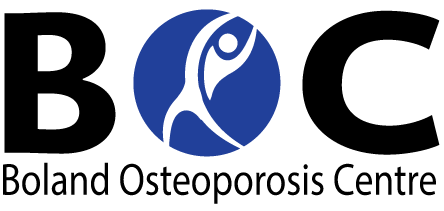FAQ's
Everything you need to know
Below you’ll find answers to our most commonly asked questions. Please contact us If you don’t find the answer you are looking for.
Give us a call
021 872 0705
Send us a Message
admin@bolandosteo.co.za
Visit us
16 Paarl Medical Centre, Berlyn street, Paarl
Osteoporosis
The main cause of osteoporosis is bone loss due to a drop in your body’s estrogen levels. Estrogen is a hormone that helps build and maintain your bones. The most common cause of estrogen loss in women is menopause. Other factors that may increase your risk include:
- Sex
- Age
- Genetics
- Nutrition & Lifestyle choices
- Medical conditions
Usually, there are no symptoms of osteoporosis. That is why it is sometimes called a silent disease.
However, you should watch out for the following things:
- Loss of height (getting shorter by an inch or more).
- Change in posture (stooping or bending forward).
- Shortness of breath (smaller lung capacity due to compressed disks).
- Bone fractures.
- Pain in the lower back.
From a young age, both men and women can take steps to prevent osteoporosis by making sure that they:
- have a healthy and varied diet with plenty of fresh fruit, vegetables and whole grains
- eat calcium-rich foods
- absorb enough vitamin D
- avoid smoking
- limit alcohol consumption
- limit caffeine
- do regular weight-bearing and strength-training activities.
Our bones store calcium. As we age, we absorb less and less calcium from our diet, causing our bodies to take more and more calcium from our bones. If we do not have enough calcium in our diets to keep our bodies functioning, calcium is removed from where it is stored in our bones. Over time, this causes our bones to grow weaker and can cause or contribute to osteoporosis.
One of the best ways to strengthen your bones and reduce the risk of osteoporosis in later years is by getting regular exercise. Even if you already have osteoporosis, exercising can help maintain the bone mass you have. The two types that are most effective for building strong bones are weight-bearing exercise and strength-training exercise. Exercises to improve bone strength are site-specific. For example, walking can improve bone strength in the legs and spine but not in the wrist. Postural stretching and strengthening can help prevent or decrease the amount of upper spine slumping seen in many older people. Leaning over to tie your shoes or sweeping and mopping can lead to spine fractures in people at high risk of spine fracture. Try to maintain good spine posture with all your activities.
Before you start a new workout routine, check with your doctor and physical therapist. They can tell you what’s safe for your stage of osteoporosis, your fitness level, and your weight.
The DEXA Scan
There aren’t any special preparations needed, except to stop taking any calcium supplements for 24 hours before the test. You should let the doctor know if you’re pregnant or suspect you might be pregnant. They may want to defer the DEXA scan until after you have the baby or take special precautions.
Wear comfortable clothing. Depending on the body area being scanned, you may have to take off any clothes with metal fasteners, zippers, or hooks. The technician may ask you to remove any jewelry or other items, such as keys, that may contain metal. You may be given a hospital gown to wear during the exam.
Bone density scans are very safe. They use a much lower level of radiation than standard X-rays, which means that the radiographer (the technical specialist carrying out the scan) can stay in the scanning room with you during the scan. The amount of radiation used during a bone density scan is very low and less than 2 days’ exposure to natural background radiation (NBR).
If you are pregnant, you should not get a scan. However, if you are breastfeeding it’s perfectly safe.
For tracking bone density (osteoperosis screening), it is recommended as a routine screening for all women over-65. The test is also recommended for women under-65 with additional risk factors. The scan is typically repeated every two years.
General Questions
We work with almost all medical aids, but we have a fixed rate for our services. This means that except for the medical aids that we have pre-arranged contracts with, there will be a co-payment.
Funds Contracted For All Procedures:
- Discovery and most funds that are administered by Discovery.
- Momentum and various funds administered by Momentum.
- Polmed
- Fedhealth
- Bonitas
- Bankmed
You can phone us on 021 872 0705, email us at bolandosteo@telkomsa.net or complete the online form on the contact page.


